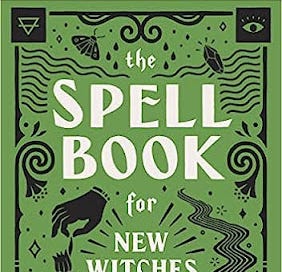In January the paperback edition of Hunting Magic Eels comes out, with four new chapters. One of those chapters is titled "Hexing the Taliban" and is a closer look at the immanent enchantments of paganism in contrast to the transcendent + immanent enchantments of Christianity, along with a discussion about why this contrast matters.
In researching that chapter, I took a deep dive into witchcraft, spending time in some popular and best-selling spell books. If you've never looked at a spell book, here's my hot take: Witchcraft is the pagan prosperity gospel.
As you likely know, the prosperity gospel is a hotly contested stream of American Christianity. See Kate Bowler's analysis in her book Blessed: A History of the American Prosperity Gospel.
In light of these criticisms, it is often assumed that the prosperity gospel is a uniquely Christian phenomenon. But that is wrong. The prosperity gospel flourishes throughout America, and paganism has its own version. As do all sorts of secular forms of self-improvement and self-help, many of which also have a quasi-mystical aspect to them.
Basically, the prosperity gospel isn't a Christian product, it's an American product. Wherever the American striving for success and self-improvement is found, it comes in friendly packaging no matter your metaphysical commitments. Christian, pagan, or wholly secular. If you're an American Christian you have Joel Osteen. If you're a pagan, you have your spell books. The metaphysics are different, but they are pushing the same product.
Consider, to give an example, Ambrosia Hawthorn's popular book The Spell Book for New Witches: Essential Spells to Change Your Life. You see it right there in the subtitle: Essential spells "to change your life." If you look through the Table of Contents of The Spell Book for New Witches you'll see that the spells are broken down into the categories: Romantic Love; Money Matters and Prosperity; Work and Career; Friends and Family; Health and Healing; Protection and Forgiveness; and Well-Being, Success and Abundance. There are spells help you attract lovers, get rich, secure a work promotion, strengthen friendships, handle anxiety, get physically healthier, be protected during travel, develop better self-esteem, and become happier. Basically, all the spells you need to have your best life now. The final spell in the book says it all: "The Witch's Ladder for Success and Abundance."
The point, again, is that if you think the prosperity gospel is a Christian phenomenon, you're confused. As you can see in the The Spell Book for New Witches, paganism has its own version of the prosperity gospel, the American success ethos painted over with different metaphysical colors.
In short, the prosperity gospel isn't a Christian problem, it's an American problem, no matter what you believe.




It's a an American problem, and it has become a cultural colonialism problem. Here in Latin America, we have a very unique and aspirational flavor of the gringo prosperity gospel infesting the church.
I wonder if prosperity is unique to the US. My impression of Chinese medicine and traditions is that they emphasize good fortune, prosperity, and health.